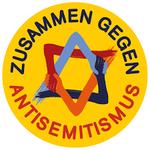Kennedy’s view of America’s involvement in Southeast Asia was expressed clearly at his first ever press conference. When asked about Laos he expressed his intentions to help create “a peaceful country – an independent country not dominated by either side but concerned with the life of the people within the country.” This was a marked departure from Eisenhower’s policy of supporting anti-communist military dictatorships in Southeast Asia and the Americas.
JFK wollte in Laos eine diplomatische Lösung, die das Land zu einem blockfreien, neutralen Land machen sollte- was einem fanatischen Antikommunismus widerspricht.
According to David Kaiser, it was not only the CIA and the Pentagon who wanted him to send troops to Laos and Vietnam. Members of his own administration, including McNamara, Lyndon B. Johnson, Dean Rusk, McGeorge Bundy, Walt Rostow and Roswell Gilpatric, were also strongly in favour of Eisenhower’s policy of “intervention in remote areas backed by nuclear weapons”.
Im Fall Laos und Vietnam war JFk gar nicht so "fanatisch" wie du ihn darstellst. Nciht nur CIA und Pentagon, sondern auch das Kabinett war fanatischer als JFK selbst.
Kennedy continued to resist all attempts to persuade him to send troops to Vietnam. His policy was reinforced by the Bay of Pigs operation. Kennedy told his assistant secretary of state, Roger Hilsman: “The Bay of Pigs has taught me a number of things. One is not to trust generals or the CIA, and the second is that if the American people do not want to use American troops to remove a Communist regime 90 miles away from our coast, how can I ask them to use troops to remove a Communist regime 9,000 miles away?"
http://spartacus-educational.com/JFKmcnarmara.htm Narrenschiffer schrieb:Wie radikal Kennedy war, zeigt sich im Interview mit Walter Cronkite am 2. September 1963:
Narrenschiffer schrieb:Wie radikal Kennedy war, zeigt sich im Interview mit Walter Cronkite am 2. September 1963:
 Narrenschiffer schrieb:Und am 9. September in einem Interview für NBC:
Narrenschiffer schrieb:Und am 9. September in einem Interview für NBC:
Man sollte hier bedenken, dass JFK schon die Wahlen 64 im Auge hatte. Es handelt sich hier um Statements gegenüber der Presse. Beweiskräftiger sind da eher interne Dokumente, Aussagen ehemaliger Mitarbeiter etc.
In September, 1963, Robert Kennedy expressed similar views at a meeting of the National Security Council: “The first question was whether a Communist takeover could be successfully resisted with any government. If it could not, now was the time to get out of Vietnam entirely, rather than waiting.”
Das klingt nicht so, als ob JFK um jeden Preis in Vietnam gewinnen wollte.
Im Übrigen sind deine Aussagen überhaupt nicht überhaupt nicht militant:
All we can do is help, and we are making it very clear.
 Narrenschiffer schrieb:We should use our influence in as effective a way as we can,
Narrenschiffer schrieb:We should use our influence in as effective a way as we can,
Er sagte auch:
It is their war
1963 sprach JFk immer noch von Hilfe und Einfluss, obwohl er schon 1961 mehrmals gedrängt wurde, Bodentruppen zu entsenden.
Der gesamte Kongress und die Mehrheit dachte in der Denkweise des Kalten Kriegs- deswegen würdest du sie aber niemals als
fanatische kalte Krieger bzw. Antikommunisten bezeichnen.
JFk hat sogar auch für Vietnam eine diplomatische Lösung gesucht.
Newly uncovered documents from both American and Polish archives show that President John F. Kennedy and the Soviet Union secretly sought ways to find a diplomatic settlement to the war in Vietnam, starting three years before the United States sent combat troops...
Back-channel discussions also were attempted in January 1963, this time through the Polish government, which relayed the overture to Soviet leaders. New Polish records indicate Moscow was much more open than previously thought to using its influence with North Vietnam to cool a Cold War flash point.
The attempts to use India and Poland as go-betweens ultimately fizzled, partly because of North Vietnamese resistance and partly because Kennedy faced pressure from advisers to expand American military involvement, according to the documents and interviews with scholars. Both India and Poland were members of the International Control Commission that monitored the 1954 agreement that divided North and South Vietnam.
http://www.boston.com/news/nation/articles/2005/06/06/papers_reveal_jfk_efforts_on_vietnam/?page=full (Archiv-Version vom 01.04.2015)Wenn JFk "fanatisch war, wie beschreibst du dann Persönlichkeiten wie eisenhower, LBJ oder Curtis LeMay?
In the final months of his administration, Dwight Eisenhower was mainly concerned with trying to overthrow the government of Fidel Castro in Cuba. He was also worried about events in Laos and Vietnam. However, according to David Kaiser (American Tragedy: Kennedy, Johnson and the Origins of the Vietnam War) Kennedy subtly changed foreign policy after he gained office. “Ironically, while Eisenhower’s supposedly cautious approach in foreign policy had frequently been contrasted with his successors’ apparent aggressiveness, Kennedy actually spent much of his term resisting policies developed and approved under Eisenhower, both in Southeast Asia and elsewhere. He also had to deal with the legacy of the Eisenhower administration’s disastrous attempts to create a pro-Western rather than a neutral government in Laos – a policy he quickly reversed, thereby avoiding the need for American military intervention there.”
http://spartacus-educational.com/JFKmcnarmara.htmWe cannot let Laos fall to the communists, even if we have to fight, with our allies or without them
https://books.google.de/books?id=hO__AwAAQBAJ&pg=PA9&lpg=PA9&dq=december+31+1960+eisenhower+laos&source=bl&ots=FRUWJpojZy&sig=uHJyicN4hTP8jnFqGiHZO3WKGAU&hl=de&sa=X&ei=QJdbVfu1PJO_sQTf7oMI&ved=0CDAQ6AEwAg#v=onepage&q=december%2031%201960%20eisenhower%20laos&f=falseAfter the assassination of John F. Kennedy McNamara continued in the post under Lyndon B. Johnson. The main change that Johnson makes to Kennedy’s policies concerns his foreign policy. As David Kaiser points out in American Tragedy, Johnson returned to Dwight Eisenhower policy “which decided upon a militant response to any new Communist advances virtually anywhere on the globe.”
http://spartacus-educational.com/JFKmcnarmara.htmAt Johnson's first Vietnam meeting on November 24, 1963 there was a quite different tone and attitude than anything Kennedy had said with his Cabinet. The new president stated clearly, "I am not going to lose Vietnam. I am not going to be the president who saw Southeast Asia go the way China went." He ordered South Vietnamese Ambassador Henry Cabot Lodge to "tell the generals in Saigon that Lyndon Johnson intends to stand by our word." (Newman, p. 442) This is rather an odd thing to say. Because the word prior to Dallas was that the USA was intending to withdraw and turn the war over to South Vietnam.
Johnson then said that he was unhappy with our emphasis on social reforms, he had little tolerance for the US trying to be "do-gooders". (ibid, p. 443) He then added that he had "never been happy with our operations in Vietnam." (ibid) His intent was clear: it was to win the war. (McNamara, In Retrospect, p. 102)
He then issued a stern warning: He wanted no more dissension or division over policy. Any person that did not conform would be removed. (This would later be demonstrated by his banning of Hubert Humphrey from Vietnam meetings when Humphrey advised Johnson to rethink his policy of military commitment to Vietnam.) When the meeting was over, Bill Moyers remained in the room with Johnson. LBJ said, "So they'll think with Kennedy dead we've lost heart ... they'll think we're yellow ..." Moyers asked whom he was referring to. Johnson replied the Chinese and the Russians. Moyers asked his boss what he was going to do now. Johnson said he was going to give the generals what they wanted, more money. LBJ continued by saying that he was not going to let Vietnam slip away like China did.
He was going to tell those generals in Saigon "to get off their butts and get out in those jungles and whip the hell out of some Communists." (Newsweek, 2/10/75)
LBj war in Sachen in Vietnam fanatisch- er duldete keinen Widerspruch im eigenen Kabinett und enthob Kritiker seiner härteren Gangart ihrer Positionen.
David Kaiser points out that Johnson “never seriously considered the alternatives of neutralization and withdrawal.” Kaiser adds: “Johnson, in short, accepted the premises of the policies that had been developed under Eisenhower – premises whose consequences Kennedy had consistently refused to accept for three years.”
Johnson also opposed Prince Sihanouk’s new proposal for a conference on Cambodian neutrality. Johnson feared this would encourage Thailand and South Vietnam to follow the neutral policy that had been with Kennedy’s encouragement, achieved by the government in Laos. He also rejected suggestions by Mike Mansfield for a truce in Vietnam as he did not want “another China”. Mansfield replied, that the “United States did not want another Korea either”.
Johnson told General Paul Harkins, commander of the U.S. military assistance in South Vietnam, that it was necessary to “make clear that the US will not accept a Communist victory in South Vietnam and that we will escalate the conflict to whatever level is required to insure their defeat.”
JFK war, wenn überhaupt, ein modeerater Kalter Krieger und in Vergleich zu Johnson weitaus flexibler. Es gab bei JFk keinen starren fanatismus.
EC145 schrieb:für mich ist nur eines fakt.





